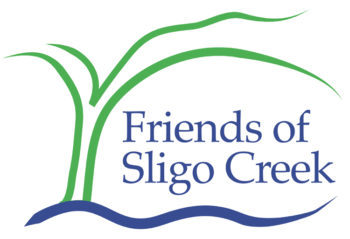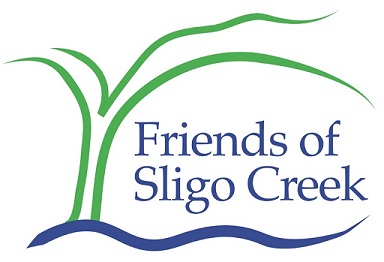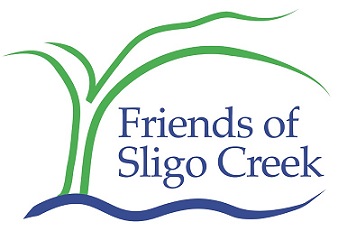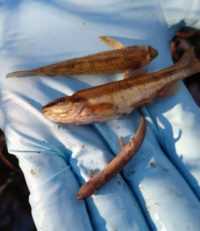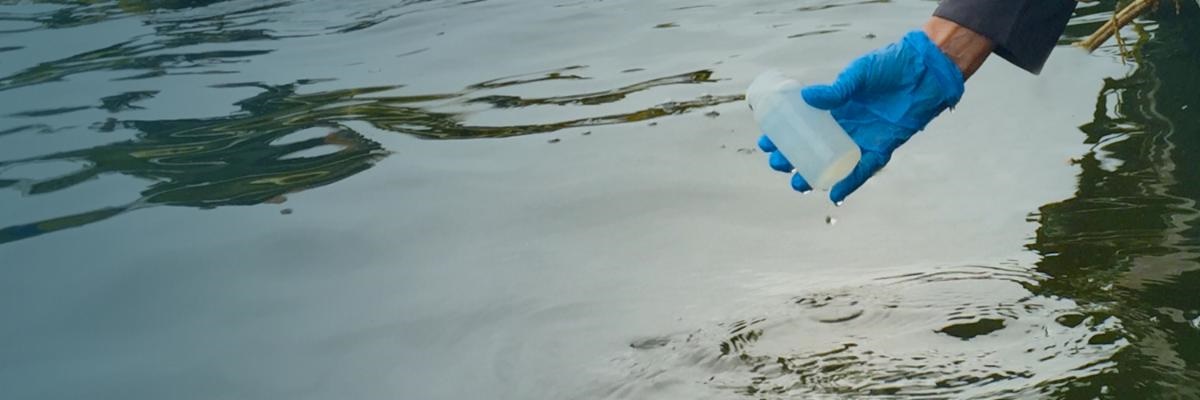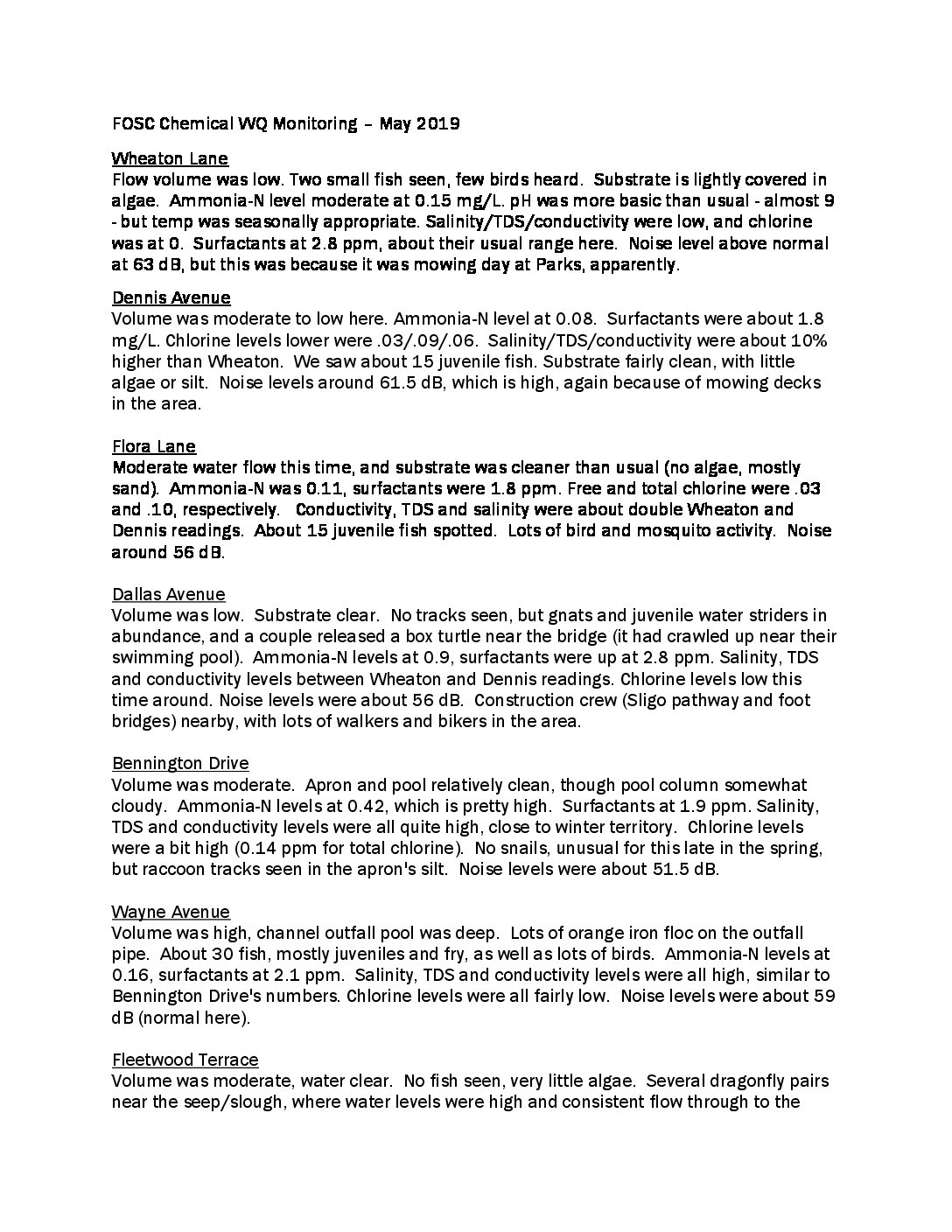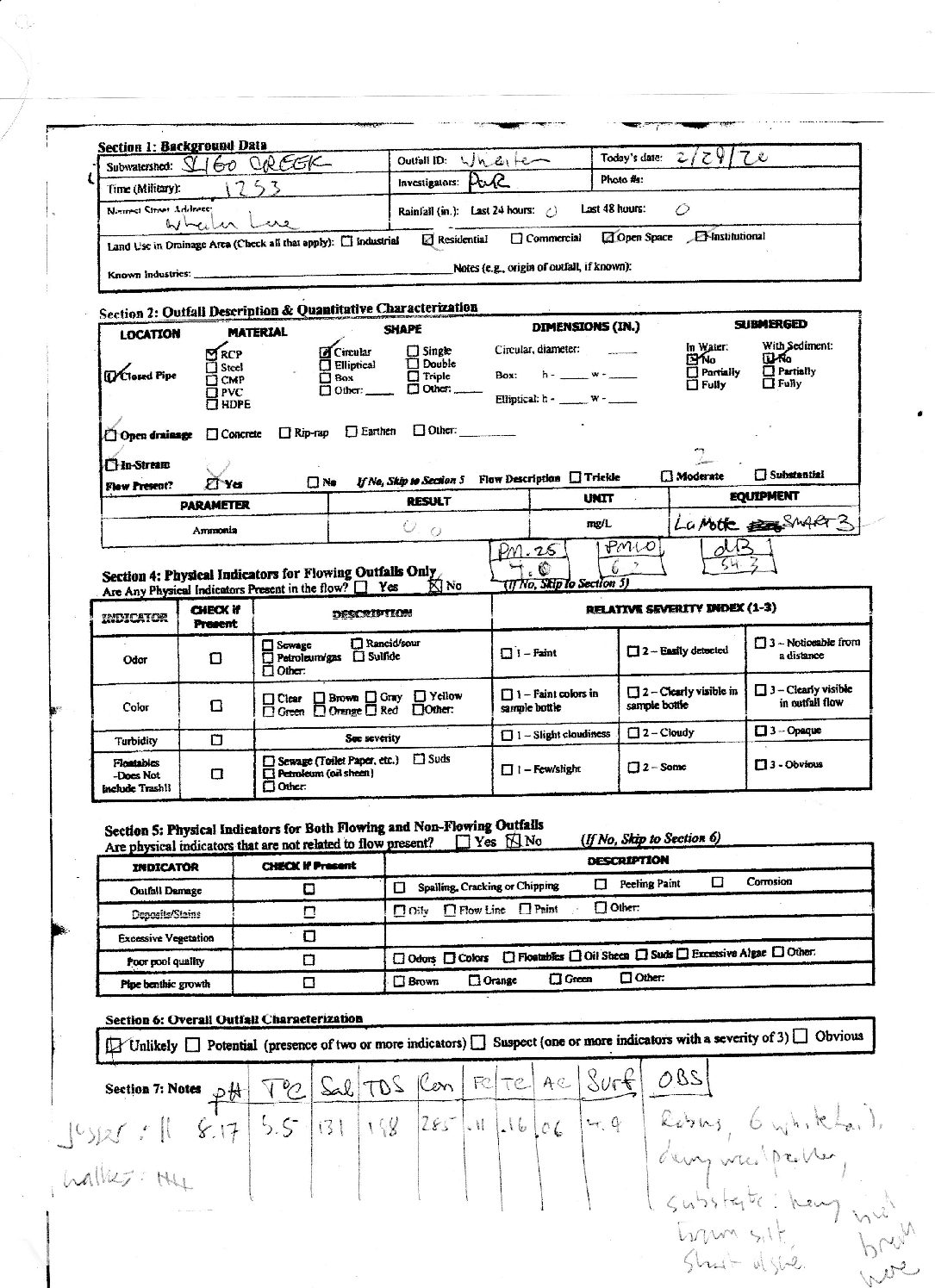Systematically monitoring and recording the water quality of Sligo Creek, and educating the public about the importance of clean water for fish and wildlife
What the Water Quality Committee is Doing Now
Recent Articles in Water Quality
What’s Killing the Salmon in Our Urban Streams? A Mystery is Now Solved.
A chemical called 6PPD that’s found in tires is devastating aquatic life.
Flame retardant pollution threatens wildlife on all continents, research finds
Sligo Creek has not been immune to flame retardant pollution.
Community faults local, state response to construction runoff. We’re dealing with the same construction and sediment issues on a much smaller scale in the Sligo Creek watershed.
[/fusion_text]
Faring Well? Sligo, Long Branch and NW Branch Water Quality – a talk with Anacostia Riverkeeper, FOSC, NNWB and MoCo Parks
The Water Quality Committee of FOSC hosted Anacostia Riverkeeper, NNWB, and MoCo Parks for a look at the findings from this year’s Summer Volunteer Water Quality monitoring program.
This summer’s WQ monitoring program ran from May through September, focusing on physical measurements like temperature, pH, and dissolved oxygen, as well as pollutants like turbidity and coliform bacteria. Every two weeks, dedicated volunteers took measurements and grabbed water samples at five sites in Long Branch, Sligo Creek and Northwest Branch. Along the way, they kept an eye on the health of these streams, and came up with some water quality results that may surprise you!
In addition, Anacostia Riverkeeper shared data and trends on bacteria levels and other water quality parameters they have found at sites across the rest of the Upper Anacostia watershed, helping to paint a broader picture of stream health in our region.
And, we were joined by wildlife biologists from M-NCPPC (Parks), who shared their insights into the ecology and biology of these streams, including a look at how vertebrate diversity (fish, salamanders and others) in these streams is faring during this era of warmer temperatures and stronger storms.
View the presentation here and on the FOSC YouTube channel.
Don’t drain water from a pool or hot water heater into the street!
It contains chlorine, and goes from the storm drain directly into Sligo Creek.
Pool water, wash water, tap water, hot or cold, contains chemicals – chlorine and other compounds – that kill wildlife such as fish, salamanders, frogs, and other aquatics, as well as plants and beneficial bacteria. Keep it out of the storm drain.
Instead, insist that your plumber drain your hot water heater into a utility sink or basement drain that goes into the sewer system, where it is treated before being released.
Nothing should go into the storm drains on the street except rain!
View the special guidelines apply when draining pool water.
USGS in Sligo Creek – presentation to FOSC
In Spring of 2022, Chuck Walker of the regional USGS MD-DE-DG Water Science Center spoke on the health and water quality of Sligo Creek. The Water Science Center has partnered with MoCo DEP to collect continuous water quality data on 7 parameters at the Maple Ave gauge. How is Sligo faring compared to other regional streams? Chuck told us about the long term trends and implications for Sligo as our area gets more densely populated. Check out the video on FOSC’s YouTube channel.
Spotlight on: Microplastics in our waterways
The impact of microplastics is an important issue in Montgomery County where it is proposed for a section of Ellsworth Drive in downtown Silver Spring. FOSC opposes the use of artificial turf on Ellsworth. See the Ellsworth Synthetic Turf page under the Current Issues page of the Advocacy tab for more information on FOSC’s concerns about synthetic turf.
FOSC Water Quality Committee volunteers have worked to create public awareness on the unseen impact of plastic pollution on humans and on waterways, including fresh waterways such as Sligo Creek. Dr. Jesse Meiller and Dr. Kathy Michels discussed the issue at a February 2020 talk sponsored by FOSC.
Scientists are finding that microplastics are everywhere in our waterways, whether salt water or freshwater. Ongoing research shows that most microplastics are harmful to living creatures and plants life due to their chemical content which does not break down (known as “forever chemicals”.) Synthetic turf is one example of a product that leaches “forever” chemicals as well as plastic bits that are ingested by wildlife.
Report on ARK/FOSC Summer Volunteer Water Quality Monitoring Program
“The Coliform results were disappointing. I don’t believe any site in the program ever met fishable or swimmable water standards during the summer, though not entirely unexpected given what our FOSC program has found over the years. I will share highlights from the full results on the WQ page shortly. FOSC participated again in 2021, and I think ARK is hoping to expand the scope of the program to new sites and tributaries if possible.”
— Pat Ratkowski, Water Quality Committee Chairperson
Ongoing Water Quality Committee programs
Volunteers for the Water Quality committee are also running several ongoing programs to help preserve and plan for the health of Sligo Creek:
Wouldn’t it be great if the water in Sligo Creek were clean enough so that people could wade or swim in it without worry? The FOSC Water Quality Committee is working to improve the water quality of Sligo Creek so that it will meet its potential as a natural and recreational resource. While it is currently home to a surprising variety of wildlife, keeping the creek waters healthy for wildlife is an ongoing challenge as the region becomes more populated.
The Committee and FOSC’s members are working with local agencies and nonprofit organizations to meet the challenge, knowing that a healthier Sligo Creek both enhances our everyday lives and benefits the waters and wildlife of the Anacostia Watershed, the Potomac River, and the Chesapeake Bay.
Are you interested in improving Sligo’s water quality?
Consider joining the Water Quality Committee!
The Water Quality Committee works on projects aimed at understanding and improving Sligo Creek’s water quality.
FOSC’s Chemical Water Quality Team regularly monitors 13 sites along the Creek and its tributaries for ten different parameters, keeping track of the Creek’s water quality and the condition of its channel and surrounding habitats. Take a look at the Team’s summary findings on the Water Quality Monitoring Data page. A sample FOSC Water Quality Monitoring Report and a sample Field sheet appear elsewhere on this page.
We also monitor macroinvertebrates for the Maryland Department of Natural Resources Stream Waders program, the Izaak Walton League’s Save Our Streams program, and the Audubon Naturalist Society program.
We try to learn about and promote Sligo Creek monitoring being done by others, and when appropriate, use our findings to advocate for local, county and regional policy changes. Information about our activities is posted on the Friends of Sligo Creek newsletter and listserv. Join FOSC to receive the newsletter.
If you would like to join the committee, participate in Committee activities or have questions, please email Pat Ratkowski, Committee chairperson, through the Contact FOSC page or email WQ at fosc.org.
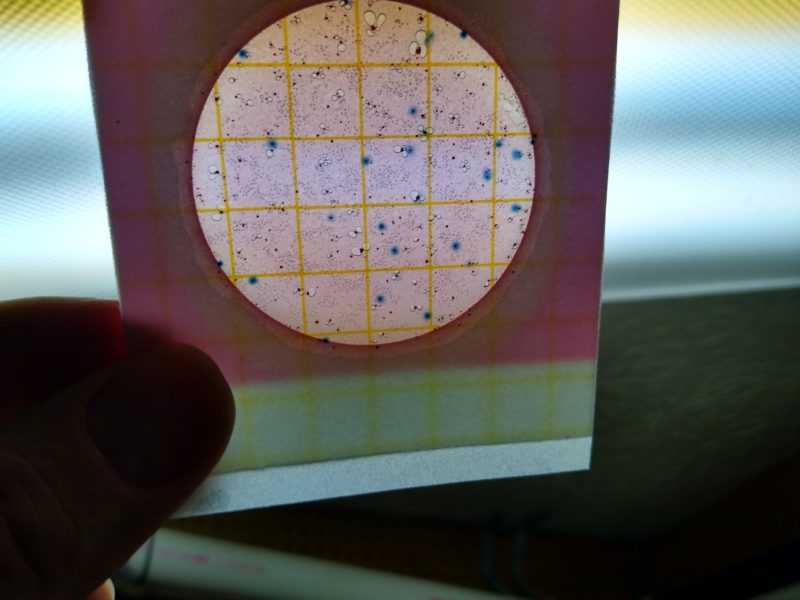
Coliform bacteria testing plate
Sample FOSC Water Quality Monitoring Report
Sample FOSC Water Quality Monitoring Field Sheet
The Sligo Creek Water Quality – Selected Bibiliography page contains further reading on Sligo Creek Water Quality.
